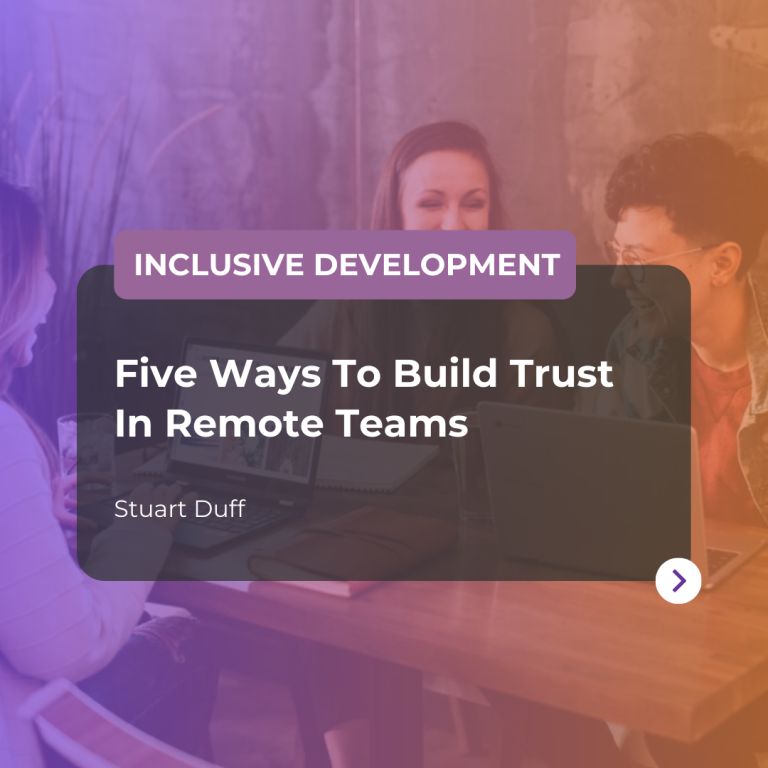Trust plays an important part in the effectiveness of any team. You need to be confident that your colleagues can be relied upon, not only to do the role that has been assigned to them, but also to provide practical and emotional support when you require it. Naturally, your team members will have the same expectation of you, as a leader. They will expect you to provide direction, motivation and to act with fairness.
When your team is working in the same location, you can see and hear your colleagues in action. These behavioural cues give a lot of information about whether they’re pulling their weight. The insights that we gain from being physically around other people are therefore a critical component in determining whether we consider a colleague to be trustworthy.
In virtual teams, these visual and auditory cues are not so readily available to us. This can lead to issues of trust within the team, which, in turn, will lead to a decrease in performance and innovation. When team members lack trust in one another, they will spend more time monitoring the communications they receive from other team members – including you, the team leader – and trying to decipher exactly what was meant.
It’s easy to also find yourself expending additional time trying to see how much effort your team members are putting into a task, or even duplicating their work. This lack of trust can lead to excessive defensive behaviours, which involve covering one’s back and criticising teammates on their performance. Again, this can go both ways, with teammates mistrusting and even criticising leaders. Such behaviour will often lead to a withdrawal from interactions with the team, because of a concern of being criticised and seeing little value in interacting with them.
So, what can you, as a leader, do to counteract such issues within virtual teams and build trust?
Here are five tips:
1. Use appropriate communication methods
Use the most appropriate medium for communicating with the team. The more complex the information, the richer the medium that should be used. Task-based information, such as allocating roles or communicating the outcomes of a meeting, could best be done by email. For more complex tasks, such as planning projects, video conference would be more appropriate.
2. Create common goals
Establish early on the purpose and goals of the team. Furthermore, establish working principles; the ways in which you expect your team to work together. Communicate these at the start of each meeting and, at its conclusion, review the extent to which the principles and ways of working were followed.
3. Build trust
Trust can be built within a team by sharing information about each member’s experience, expertise and interests. This can help create what is known as ‘cognitive’ or ‘rapid’ trust, which is an understanding of each team member’s capabilities and contribution that they can make to the team.
4. Develop deeper bonds
A deeper level of trust, which goes beyond those discussed above, is known as ‘affective trust’. This is much more about how we feel about one another and the extent to which we are prepared to offer support and help. A simple way of beginning to develop this deeper trust is to look at the way the team socialises, and the opportunities they have to get to know one another beyond the actual details of the project they are involved in. These opportunities can be generated, for example, by starting meetings 10 or 15 minutes before the stated time. This time should be used to enable people to chat to one another, discuss what’s been going on in their day, how they are handling the new ways of working and the impact it’s having on their family. When you think about it, this is the way that many meetings occur when we are physically together – people will have a coffee and socialise before the meeting actually begins. So, you may want to build in time for your team to have an online coffee together.
5. Resolve conflicts quickly
Managers also need to be trained in conflict resolution strategies. There is extra strain on the team when they are not located next to one another, so it’s vital to know how to deal with the stresses of working in a virtual team and to recognise the signs that the team is encountering some conflict. Conflict is always better dealt with sooner rather than later.
— Professor Binna Kandola and Stuart Duff, Pearn Kandola








